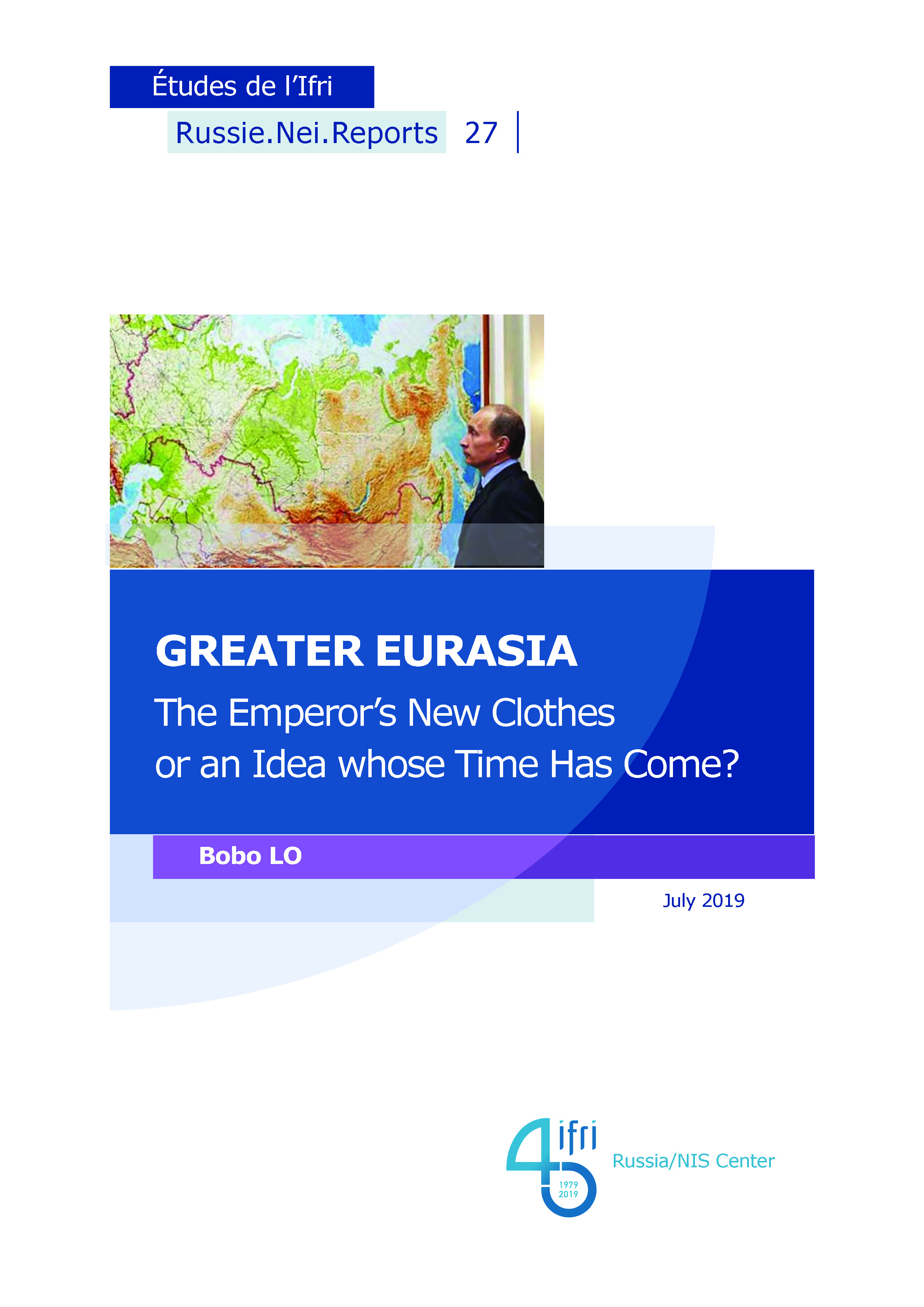Greater Eurasia: The Emperor’s New Clothes or an Idea whose Time Has Come?

The Greater Eurasia project has emerged as the poster-child of Vladimir Putin’s foreign policy, symbolic of a resurgent and self-confident Russia.
It is at once a geopolitical enterprise, political slogan, economic aspiration, and ideological construct. It is an attempt to impart dynamism to the Eurasian Economic Union. Most important of all, it seeks to establish a new, post-American order in which Russia plays a pivotal role. Greater Eurasia is a work in progress. Many of its goals are speculative and the challenges are formidable. To have any chance of success, Moscow must be able to manage the competing interests of other state-actors, in particular China; transcend the limitations of Russian power; and demonstrate sustained political will. There is little evidence so far that it is up to the task. Today, Greater Eurasia is more anti-project than project, an expression of Russian animus toward the liberal international order rather than a serious blueprint for global governance. Yet nothing is fixed. There is still scope for a positive vision to emerge out of the current confusion. Equally, though, the Greater Eurasia project could suffer the fate of previous major Kremlin undertakings, drifting along with little purpose and diminishing conviction.
Bobo Lo is an Associate Research Fellow with the Russia/NIS Center at the French Institute of International Relations (Ifri).

Available in:
Regions and themes
ISBN / ISSN
Share
Download the full analysis
This page contains only a summary of our work. If you would like to have access to all the information from our research on the subject, you can download the full version in PDF format.
Greater Eurasia: The Emperor’s New Clothes or an Idea whose Time Has Come?
Related centers and programs
Discover our other research centers and programsFind out more
Discover all our analysesRussia, the Palestinians and Gaza: Adjustments after October 7th
The Soviet Union (USSR), and subsequently the Russian Federation as its internationally recognized legal successor, has consistently sought to play a visible role in efforts to resolve the Israeli-Palestinian conflict.
Deathonomics: The Social, Political, and Economic Costs of War in Russia
The report attempts to outline and examine a truly new phenomenon in Russian society, dubbed “deathonomics”—the making of a mercenary army against the backdrop of the Kremlin’s war in Ukraine, eventually replacing both the Soviet (conscript) and early new Russian (contract) armies. It notes that, by the end of 2023, this trend had turned the military service into one of the highest-paying professions in the country, something not seen in Russia on such a scale since the late 17th century.
Russia's Asia Strategy: Bolstering the Eagle's Eastern Wing
Among Russia’s strategic priorities, Asia traditionally played a secondary role compared to the West. In the mid-1990s, then Foreign Minister Yevgeny Primakov initiated a rapprochement with China and India. Then, in 2014, deteriorating relations between Russia and the West prompted Moscow to begin its “great pivot to the East”.
Kazakhstan After the Double Shock of 2022: Political, Economic and Military Consequences
The year 2022 represented a dual shock for Kazakhstan. In January, the country faced its most severe political crisis since independence, followed in February by Russia’s full-scale invasion of Ukraine, which cast uncertainty over the borders of post-Soviet states. These consecutive crises profoundly shaped Kazakhstan’s domestic and foreign policy.










